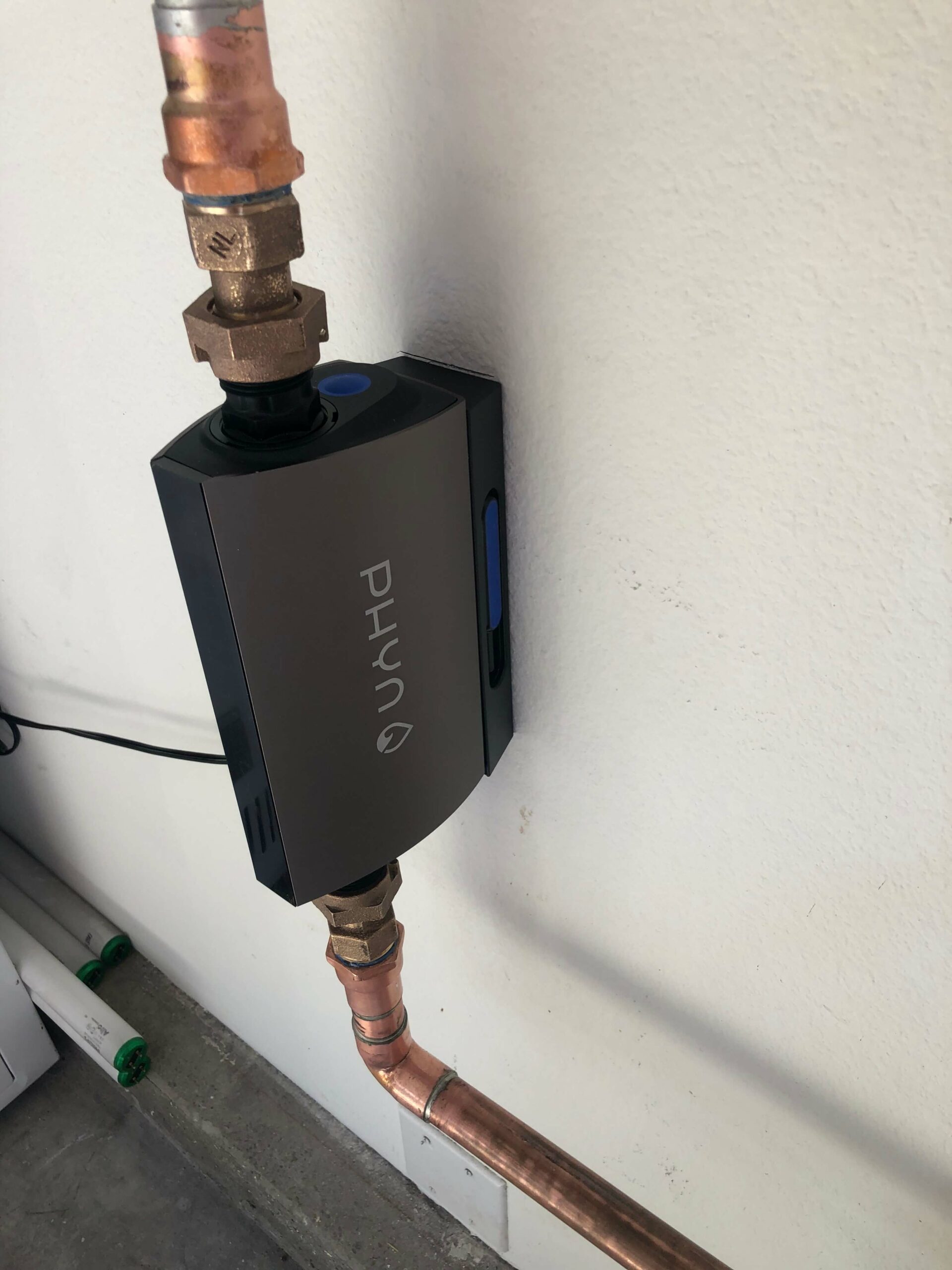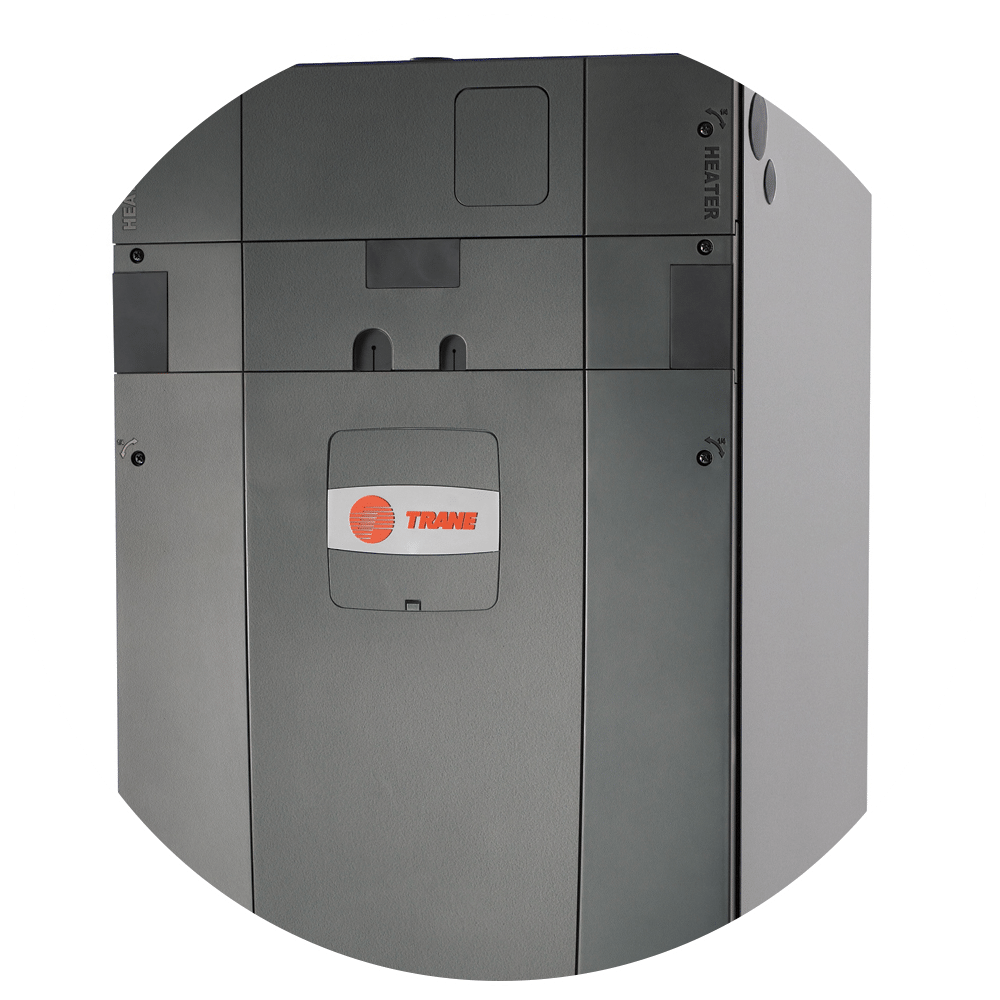Tankless Water Heater vs. Traditional Water Heater

Choosing a water heater can be a big decision for a homeowner or contractor, many factors go into selecting the correct water heater for any home. A few of these factors can include Cost, Efficiency, and Longevity. If you are selecting a water heater for the first time or replacing an old one this decision can be tolling, and that is why we are here today to discuss the differences between the two types, Tankless vs a Traditional. We will also examine the pros and cons of both types so you can leave here feeling informed and confident in your decision.
Traditional Tank Storage Water Heaters
Tank Water Heaters are the most common type of water heater and can be found in most homes around the United States. They typically hold around 30 to 50 gallons of water and stores water until needed. The tank feeds a pipe which then feeds the rest of the home. The heater uses natural gas or electricity to fuel the system. Gas tends to be more expensive than electric.
Tankless Water Heaters
Tankless Water Heaters as known to be on demand type heaters because they use burners to rapidly heat the water running through the heat exchanger. After the water is heated it is delivered straight to your pipes which then feed your faucets and showers without any need for a storage tank.
Pros and Cons
Tankless Water Heaters: these types of heaters tend to be a little more expensive than traditional buy ativan without prescription storage tank heaters because of their upfront costs to install in the home. But do not let this scare you away, these upfront costs are offset by the great efficiency that comes with the product. These systems tend to be 25 to 35 percent more energy efficient than traditional tank heaters. The longevity of these heaters is also a big plus! They usually last around 20 to 30 years but come with the scare of high replacement costs. The tankless water heater is a bit more costly to buy and install so be aware if you are on a budget.
Storage Tank Water Heaters: the tank heaters are a much more traditional option for anyone looking to make a safe decision. These systems tend to be much cheaper to install and maintain because of the simplicity of the heaters. There are a few negatives to the tank water heater, one is the looming scare of a flood occurring. These tanks tend to leak or burst over the years as they get older which could cause huge issues to the structure of the home. Another negative is the fact that the utility bill tends to be higher for these water heaters. If you are a huge hot water consumer, you might want to consider a tankless water heater because of their efficiency.
Call NexGen HVAC & Plumbing
Our expertise and commitment to customer satisfaction make us the leading HVAC company in Southern California. To learn more about our equipment, services, and protection plan, book an appointment online or call 888-277-0415.
Types of Tankless Water Heaters

Tankless water heaters have become very popular lately for several good reasons. Tankless hot water heaters are more energy efficient than traditional units because they heat water as it is used, rather than heating and reheating water in a storage tank. They also take up significantly less physical space, as they do not have a bulky storage tank. But what kind is going to be right for your home and what should you know about them?
There are three types of tankless hot water heaters available:
Non-condensing:
This is the first generation of tankless unit. These units use a heat exchanger to heat your water on-demand, and reach an Efficiency Factor (EF) of .82-.85. This technology has been in use in Europe and Japan for decades and is well-proven. The advantage of this type of unit is in reliability in that they are established products with few manufacturing issues. Some of the drawbacks of non-condensing units include hot exhaust, which means you have to install (expensive) stainless steel venting, and lower energy efficiency – in particular, the efficiency of these units drop when you use lots of hot water in short draws (i.e. washing your hands).
Condensing:
Condensing units are the second generation of tankless water heaters. After a primary heat exchanger, these units use a second heat exchanger, which reuses the heat from your exhaust to further heat the water. This results in an increased efficiency of 92-94%. The benefit of cooler exhaust is that these units can be vented using (inexpensive) PVC, while the drawbacks included a higher unit cost and, similar to non-condensing units, a lower efficiency for short water draws.
Condensing hybrid:
Condensing hybrid units are the third generation of tankless water heaters and were pioneered in the United States. These heaters incorporate a small – between 1 liter and 2-gallon – holding tank. This small holding tank keeps a reservoir of hot water, eliminating lower efficiency for short draws, meaning these water heaters achieve a true EF of .92-.96. A recent study by the Gas Technology Institute measured real life efficiency of condensing hybrid tankless water heaters and found the units consistently operated at 94% efficiency with little to no degradation due to short draws.
These units can also be vented in PVC which is less expensive. In some cases, the units also addressed “cold water sandwich” issues and pressure fluctuations that sometimes occurred with first and second-generation models. There may also be slightly less lag in the time it takes to deliver hot water to the tap or appliance. One of the drawbacks (as of writing) of this technology is that because it’s newer, most models are manufactured by smaller companies. In some cases, there have been manufacturing-quality and warranty issues with these units. Product reliability is improving but it’s important to be careful about the brand you purchase.
Call NexGen HVAC & Plumbing
Our expertise and commitment to customer satisfaction make us the leading HVAC company in Southern California. To learn more about our equipment, services, and protection plan, book an appointment online or call 888-277-0415.
7 Tips To Keep Your Water Heater Running Efficiently

Your water heater is easy to forget about. Every morning you get up and take your shower, and hot water flows through your home just like it has every morning before, but as it does its job, your water heater is using valuable energy. There are some maintenance steps you can take to make it run as efficiently as possible and also extend its life. If you've been wondering what water heater maintenance Los Angeles HVAC pros recommend, here's what the team at NexGen Air wants you to know.
How to Maintain My Water Heater so It Runs Efficiently
To keep your water heater efficient, you will want to:
1. Turn Down the Temperature
Hot water is a necessity, but you may not need the water to be quite as hot as you think. Every 10 degrees you lower your heater will save about 3 to 5 percent on your energy bills, and also keep your heater from working too hard. Instead of the 140 degrees most heaters are preset for, lower it to 120. However, don't go lower, as too cool will allow more mineral buildup.
2. Drain the Tank
One of the problems that plague water heaters is sediment and debris. Drain ¼ of the water in the tank several times a year to reduce this problem. Before draining, turn off the electricity or gas to put out the pilot light, then hook up a hose to the drain and run for 10 to 15 minutes.
3. Insulate the Pipes
Insulate all exposed hot water pipes. This will help in two ways. First, it will stop heat loss. Second, it will help your water to arrive hotter at the faucet. This means less time running the water and waiting for it to warm, so not only will you lose less heating energy but you will also lose less water.
4. Add an Insulation Blanket
Putting an insulation blanket around the water heater will improve its efficiency, particularly if you have an older unit. In fact, you could see a 45% reduction in heat loss with this addition.
5. Use Less Hot Water
If you have a family with four people, and each of those four people showers for five minutes a day, you will use 700 gallons of water a week. That's a significant amount. To make your water heater more efficient, use less hot water. Low-flow showerheads and faucet aerators on bathroom and kitchen faucets will help. These steps can reduce hot water use by up to 60%.
6. Schedule Annual Hot Water Heater Inspections
Have a professional HVAC technician inspect your water heater once a year. This will ensure that any small problems that are developing are addressed before they hurt the system's efficiency or cause a system breakdown.
7. Change the T&P Valve
The T&P Valve release pressurized hot water when the pressure builds to a high level inside the tank. As it wears out, it may start releasing water too often. You can address this by either lowering the temperature in the water heater a few degrees or replacing a faulty or failing valve.
Call NexGen Today
NexGen Air is an HVAC company in Los Angeles that offers a full list of water heater maintenance,
bathroom, and plumbing services. Our expertise and commitment to customer satisfaction make us the leading HVAC company in Southern California. To learn more about our equipment, services, and protection plan,
book an appointment online or call
888-277-0415.
Why Go Tankless? The Benefits of Upgrading from Your Tank-Type Water Heater

Hot water on demand is one of the best perks a home can provide, right along with air conditioning and the garbage disposal. However, like any other major home appliance, water heaters eventually break down, especially storage tank water heaters. If your storage tank water heater has seen better days, it could be time to consider upgrading to a tankless water heater.
The Perks of a Tankless Water Heater
Whether or not you need to replace your water heater, the benefits of installing a tankless water heater are worth the cost and effort. Storage tank water heaters need to run constantly to keep the water inside the tank hot. Generally storing 30-50 gallons of hot water, there’s a limited hot water supply. What’s also important to note is that the operating costs of a tank storage water heater are expensive because it’s always running to keep the water heated. In comparison to the 20-30 lifespan of a tankless water heater, the average lifespan of a storage tank water heater is 10-15 years. The benefits of a tankless water heater include much more than efficiency, and here’s why.
No flood risk
A tankless water heater doesn’t have a tank that can crack or rupture. When a storage tank water heater has reached the end of its warranty, it might mean 30-50 gallons of water flooding your basement. This occurs when there’s enough of a buildup of mineral deposits inside the water heater’s tank, creating pressure until it bursts and resulting in some devastating water damage.
It doesn’t take up much space
One great perk, especially if you have plans to renovate the basement, is that a tankless water heater takes very little space. Without the 30-50 gallon tank, you can mount a tankless water heater just about anywhere.
They’re energy efficient.
Since there is no tank, which means there is no standby heat loss, a tankless water heater literally provides hot water on demand. A storage tank water heater needs to constantly heat the water inside the tank, regardless if you’re using the hot water or not. A tankless water heater can provide up to 5 gallons of hot water a minute, but no hot water is wasted.
You save money
Because they’re energy efficient, tankless water heaters use 30-50 % less energy than storage tank water heaters, resulting in homeowners saving up to $100 and more a year. Most tankless water heaters also come with a tax rebate.
It’s better for the environment
For the eco-conscious homeowner, tankless water heaters not only benefit the environment by being energy efficient. In fact, most tankless water heaters are built from recyclable materials, which mean one less major appliance ending up in the landfill.
What to Consider When Installing a Tankless Water Heater
If you’re ready to invest in a tankless water heater, it’s important to first consider the different types of tankless water heaters and what works best for you. Size, fuel type, and efficiency are a few important factors to think about when selecting a tankless water heater. Before contacting a plumber, consider the following.
Fuel type
There are three fuel types for a tankless water heater: gas, propane, and electric. Picking a fuel type usually depends on what type of fuel is available in your area and switching fuel types can be costly. Gas is much faster and efficient at heating water, but requires a high heat output. Electric tends to be cheaper to install, but demands a great deal of electricity to operate.
Gallons per minute (GPM)
Since a tankless water heater doesn’t use a tank, this means calculating the size in a different way. A tankless water heater delivers hot water on demand, so you need to determine how much gallons per minute (GPM) each appliance in your home needs and what the peak water consumption rate is in your house, before determining a size. If, for example, you typically have a shower, the dishwasher, and washing machine all running at the same time, you would have a GPM of 3.5 - 7.5.
Groundwater temperature
The temperature of incoming groundwater impacts the speed and flow of your tankless water heater. For homeowners who live in a cooler climate, for example, they will need a tankless water heater with a higher GPM to meet their hot water demands. Homeowners who live in a hot climate where it seldom hits freezing temperatures, should consider an outdoor tankless water heater.
Different Maintenance For Different Types
It’s also important to consider what’s involved in maintaining your brand new tankless water heater before installing it. How much maintenance will depend on the fuel type of your water heater as well as how much your water is laden with minerals. Homeowners who run on hard water should flush their water heater every 6 months. Electric tankless water heaters require little maintenance other than some routine cleaning. Gas tankless water heaters however, should be inspected annually to verify for safe fuel combustion and any other general maintenance.
Stop Paying High Water Utility Bills
Don’t let your wallet and lifestyle suffer a day longer, not when a tankless water heater can cut down your utility bills by 20%.
Call NexGen Today
Our expertise and commitment to customer satisfaction make us the leading HVAC company in Southern California. To learn more about our equipment, services, and protection plan,
book an appointment online or call
888-277-0415.











